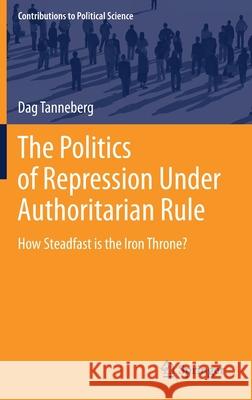The Politics of Repression Under Authoritarian Rule: How Steadfast Is the Iron Throne? » książka
topmenu
The Politics of Repression Under Authoritarian Rule: How Steadfast Is the Iron Throne?
ISBN-13: 9783030354763 / Angielski / Twarda / 2020 / 176 str.
Kategorie BISAC:
Wydawca:
Springer
Seria wydawnicza:
Język:
Angielski
ISBN-13:
9783030354763
Rok wydania:
2020
Wydanie:
2020
Numer serii:
000471413
Ilość stron:
176
Waga:
0.45 kg
Wymiary:
23.39 x 15.6 x 1.27
Oprawa:
Twarda
Wolumenów:
01
Dodatkowe informacje:
Wydanie ilustrowane











